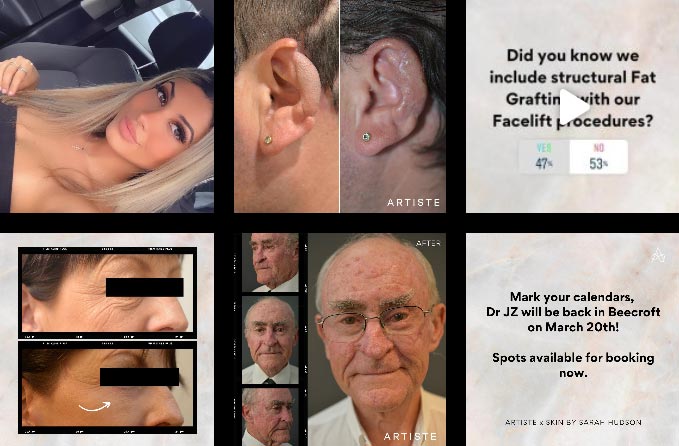When is Eyelid Surgery Necessary?
Model featured in photography

The skin and muscles around the eyes can change over time, sometimes leading to excess skin or fat that affects the appearance or function of the eyelids. In some cases, this can result in drooping eyelids, which may obstruct vision or contribute to a feeling of heaviness around the eyes.
When these changes begin to interfere with daily activities, such as reading or driving, eyelid surgery may be considered as a way to address functional concerns. A consultation with a qualified surgeon can help determine whether this procedure is suitable for your specific needs and goals.
So When Might Eyelid Surgery Be Medically Necessary?
Eyelid surgery can address functional or cosmetic-related concerns with the eyelids. For some, excess skin or looseness in the skin around the eyelid area can interfere with their vision, leading them to consider this surgery as one of the options.
Common signs that may prompt consideration of eyelid surgery include difficulty lifting the upper eyelid, a limited field of vision, reduced peripheral vision due to excess skin, or lower eyelids that expose the white area beneath the iris.
However, it’s important to note that candidacy for this procedure depends on a variety of factors, including overall health and the presence of medical conditions such as diabetes, hyperthyroidism, glaucoma, or eye infections, which may affect the surgery or recovery process.
Eyelid Surgery Recovery
Several days post-blepharoplasty surgery, you may experience swelling and bruising around the eyes. These are all a natural part of the healing process and can be managed through application of cold compresses, keeping the head raised (especially during sleep), and avoiding exercise.
Although blepharoplasty is generally considered a safe cosmetic surgery, you should still be aware of the potential risks. Mild side effects like temporary numbing in the surgery site, dry eyes, or mildly blurred vision are common and will resolve in several weeks or months.
The more serious complications, however, like infection, hematoma, or prolonged swelling are rare but require prompt medical attention. In some cases, these may even necessitate the need for revision surgery.
Patients should be able to follow post-op care instructions by their surgeon and avoid aggravating the surgery site by rubbing or itching to help minimise the risk.
Thoroughly consulting with the surgeon for any complications arising after a blepharoplasty recovery is critical. Only your surgeon can provide tailored insights into your recovery, address concerns related to potential complications, and assure your preparedness in the decision.
Disclaimer: At Artiste Plastic Surgery, our Plastic Surgeons led by Dr Jack Zoumaras have been trained to the highest possible degree. All surgery has risks and it is always advised to get a second opinion. Risks are very real and we cannot guarantee any result. Results are illustrated as a guide only. All risks are managed and any need for revision surgery or complications (1-5%) can be managed by our specialist plastic surgeons.
Any statements on how you will feel is based on Level V Evidence:
Level V: How you will feel after plastic surgery varies between individuals, depending on psychological and physical factors. Our internal research is based on how patients in our practice feel after surgery.
The blogs are not a substitute for a medical consultation and do not form as part of the doctor to patient relationship.
SHARE THIS ARTICLE
Oct08
Upper vs Lower Eyelid Surgery: What’s the Difference
Disclaimer: At Artiste Plastic Surgery, our Plastic Surgeons led by Dr Jack Zoumaras have been trained to the highest possible degree. All surgery has risks and it is always advised ...
Oct08
Blepharoplasty for Hooded Eyes: Before & After Guide
Disclaimer: At Artiste Plastic Surgery, our Plastic Surgeons led by Dr Jack Zoumaras have been trained to the highest possible degree. All surgery has risks and it is always advised ...
ABOUT ARTISTE
Artiste Plastic Surgery is an Award Winning Specialist Plastic Surgery practice led by internationally trained Dr. Jack Zoumaras, Plastic Surgeon and Peer Reviewed Face Surgeon
Artiste offers the latest Cosmetic Surgical Procedures of the Face, Breast and Body, inspired from leading centres around the world.
STAY IN THE LOOP
Enter your email address below to receive updates on new articles and VIP access to promotions and special offers.
FOLLOW US ON INSTAGRAM
